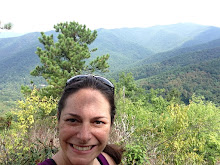There’s something holy about connecting with someone from a different ethnicity or nationality. In spite of all the factors that separate us – language, culture, experience – whenever I share a moment of connection with a person from another background, when we’re able to transcend what makes us different and relate to each other as equals, in those moments it feels like something sacred has broken through into everyday, ordinary life.
I think in some way these moments feel holy to me because they are a reversal of the pride and control exhibited by the story about building the Tower of Babel. In that story from Genesis, the people decide that they have what it takes to build a tower that reaches all the way to heaven, and so to humble them, God makes them all start speaking different languages – and suddenly they can no longer understand each other, and their great plans fall apart because they can’t communicate well enough to build something together. When we are humble enough to recognize that no single person or culture has all the answers, then I think God reverses that sense of division just a bit – we are able to see our inherent unity, our common roots.
It seems to happen most often in kitchens, or around tables. Kitchens are the place where women tend to let their guards down, to relax and to feel most comfortable being themselves. To ask questions that you might not ask in the formal dining room or in front of guests. Guests don’t often get invited into the kitchen – the kitchen is for family, for servants, for those who are close enough to see the dirty dishes and the scraps and the mess that we hide from those we’re trying to impress. I knew that I was no longer a guest in the Kulasegaram home when they let me start coming to the kitchen to sit and talk while they cooked dinner. I don’t know how long I had been coming to their home for dinner by the time I was invited into the kitchen, but I do remember that when I first started my weekly meals at their house, I would arrive and be seated at the table to eat while the rest of the family sat back and watched me eat. That’s the expectation for a respected guest in Sri Lanka – they eat first, while the others wait. So, when I finally made it into the kitchen, to help cut vegetables and prepare the meal, and when we all sat around the kitchen and ate our meal at the same time, I felt like family. It was in the kitchen that we spoke honestly about our fears, our hopes, our faith; where a Hindu family adopted a soon-to-be Christian minister as their sister and daughter.
It was also in a kitchen in rural northern Namibia that Meme Marta, who had picked up two American divinity students – strangers to her – earlier that evening to come and stay in her home, told us about how AIDS had impacted her family, about adopting her young niece, about what it felt like to have her husband working in mines hours away most of the month. It was where my African-American classmate Ravyn and I tried to explain that yes, we were both really American, even though one of us was black and the other was white. And after we ate the meal that we had helped Meme Marta prepare, she prayed the most beautiful prayer that she had written for Raven and I before she even met us. A holy moment.
It happens a lot in hospitals, too. Squeezing the hand of my friend Sutha as she went into labor with her first child, without any painkillers, in the public hospital in Jaffna, Sri Lanka. I just happened to be in the hospital visiting another friend’s sister when I saw Sutha in the hallway, in need of a hand to hold.
Or sitting in on a pre-natal check up with one of my parishoners in Raleigh, a refugee from Vietnam, and holding her beautiful, shy 2-year-old daughter. Indescribable moments of connection that transcend language, education, economics and background. Divine moments that make presence and shared experience more important than any barriers that humans can construct.
Thursday, January 13, 2011
Subscribe to:
Posts (Atom)
